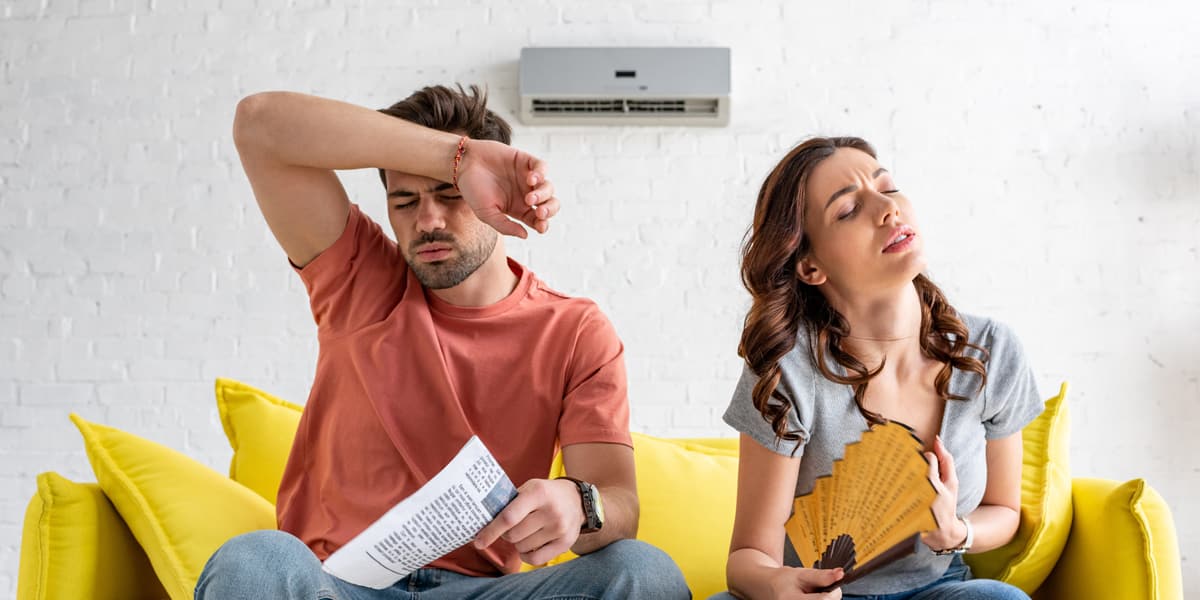
Do you have an AC that cools your home’s main floor but not the second floor? Unequal cooling is a common yet frustrating problem we encounter when doing Wesley Chapel air conditioning repair. Beyond causing discomfort, a poorly air-conditioned upstairs can raise your energy bills. It might also lead to physical problems such as lack of sleep and increased allergies.
An AC not cooling upstairs makes perfect sense because warm air always rises, so you’re up against the laws of nature in trying to cool your second floor. But here’s the good news: there are many things you can do to sufficiently cool your upstairs, even during the hottest, muggiest days of summer.
Read on to learn why your AC isn’t sufficiently cooling your upstairs and how to correct each issue.
A ranch-style house usually needs just one HVAC unit or system as that type of house only has one floor. But a home with multiple floors may need more than one HVAC unit or system, along with several thermostats. Depending on your type of HVAC unit or system, you may need to invest in a second unit for your upstairs. The layout of your home also indicates the type of AC setup you need.
You may also want to think about installing a zoned system. This system allows different rooms, or “zones,” to heat and cool at varying levels. Therefore, people in other areas of the house can choose their preferred heating or cooling setting. Also, a zoning system enables you to turn off cooling in unused rooms to save both energy and money.
Have you had your AC system inspected recently? It’s good to have it looked at by a professional at least once a year. An HVAC inspector can identify and address the problems that might lead to an AC not cooling upstairs.
These problems include:
Of course, maintenance can only go so far in restoring an older AC system. Even a ten-year-old unit might be out of date for your home, especially if it requires more repairs. Luckily, there are countless new HVAC units and systems that work more efficiently and can successfully pump cool air to your second floor.
If you decide to replace your unit, consider ENERGY STAR-certified air conditioners. These air conditioners contain more insulating materials and use 8% less energy than other models—and they will help you save money over time. So, if your unit is between ten and fifteen years old or needs frequent repairs, it’s time to contact a technician and get advice on a new model.
The outfitting of your entire home can contribute to excessive heating upstairs. Correcting these problems can buffer against hot air and save you money on energy bills. Here are just a few examples of insufficient heat-proofing:
If you’re tired of your AC not cooling upstairs, give ABS a call at 813-933-1000. They will send an HVAC technician to your home to examine your unit, advise on the proper placement of an AC unit, and more.